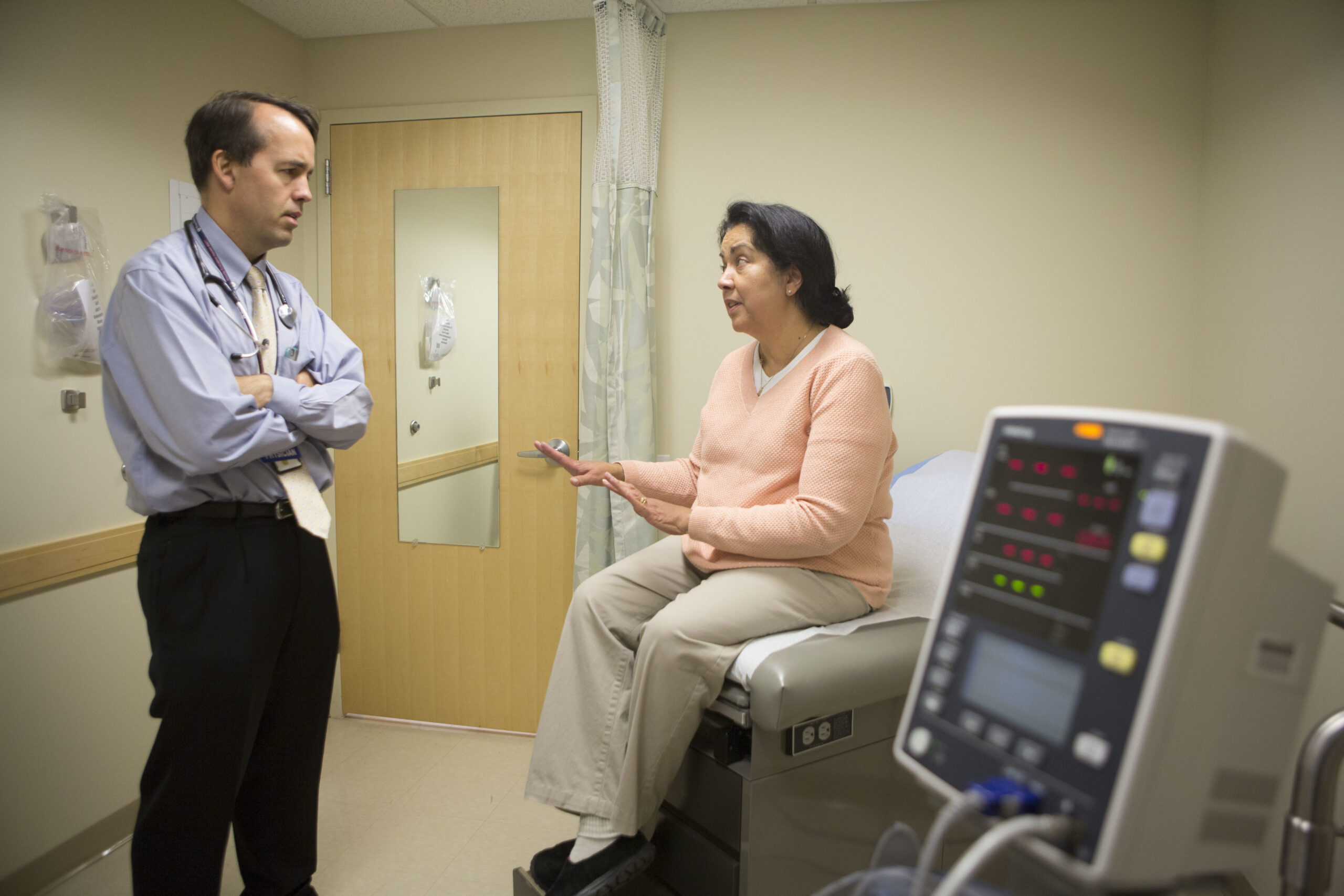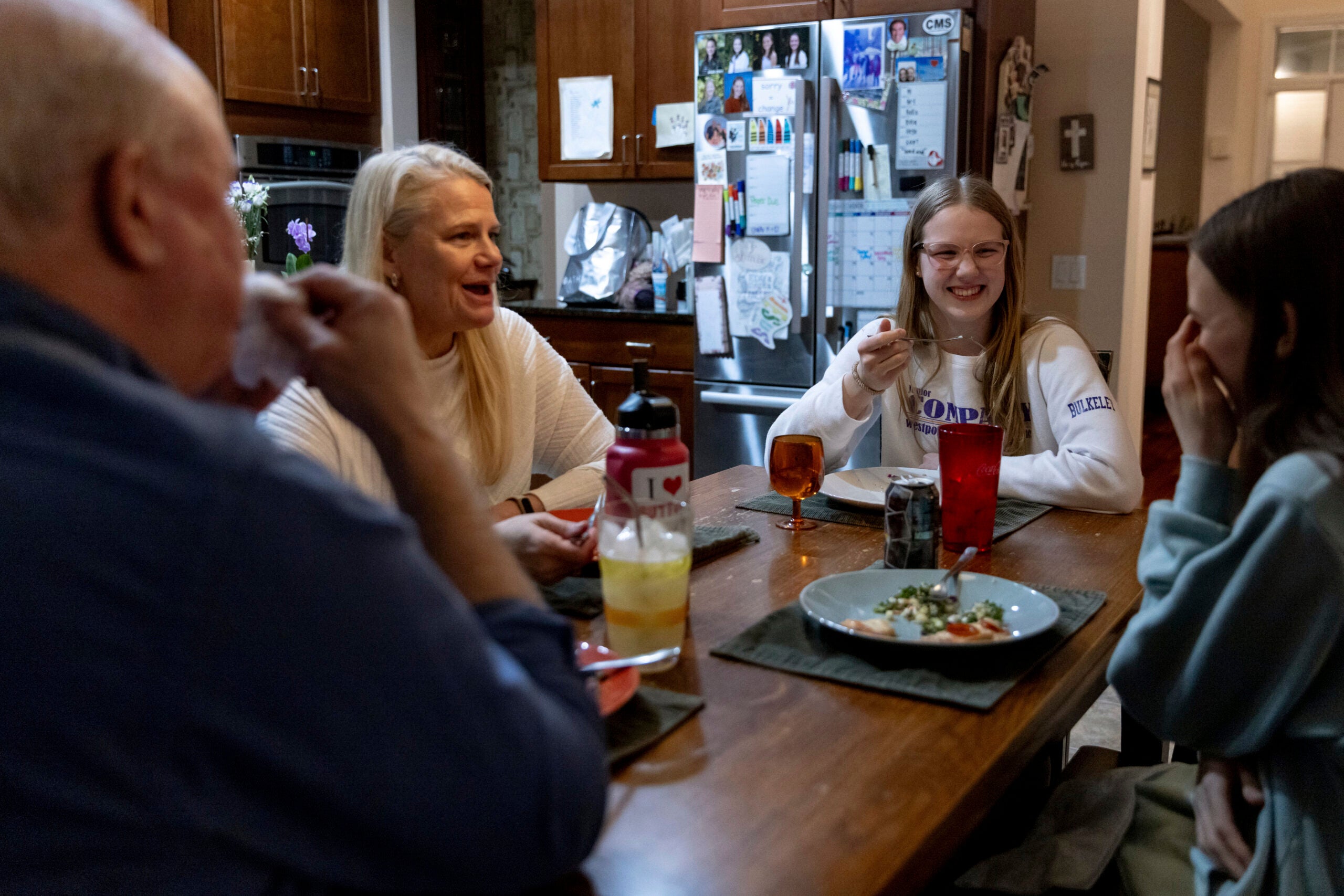A few years ago, a good doctor friend of mine died in his office.
Sweet person. Great personality. Everyone loved him. Good father. The go-to guy when it came to his patients. He always saw them, worked them in even when his day was too full.
His medical judgment was exceptional, his work ethic over-the-top. He was adored by so many of his patients.
Stay informed on the latest news
Sign up for WPR’s email newsletter.
But he had a blind spot — his own health. He let that fall between the cracks by substituting his own judgment for those of others. He didn’t pay attention when attention must be paid.
Was this denial? Maybe. I think it was death by hubris.
This ancient Greek concept of hubris is best embodied by Achilles. The greatest warrior of all time, Achilles thought nothing could stop him, and then the enemy discovered his weak spot — Achilles’ heel. They struck, he died.
Hubris is often thought of as haughtiness, arrogance. For some, it is. But for others, it’s just an overconfident pride and overestimation of one’s own ability. Most with hubris are knowledgeable and competent. They have extreme pride in what they can do, and that shows in their work. But as the proverb goes, “pride goes before a fall.”
One famous case of death by hubris was Jim Fixx, father of the aerobic running. He took Ken Cooper’s concept of running for optimal health and pushed it into national prominence.
Fixx was 52 when he dropped dead. He ignored the fact that his dad died of a heart attack at 43. He ignored his “minimal” chest pains because he was a runner and runners know their bodies, right? He ignored his family’s and friends’ suggestion that he see someone because he “didn’t look good.”
Fixx’s autopsy showed 95 percent blockage in the left main stem artery — a blockage we aptly call “the widow maker.”
Then we have that other famous case, a death defying case — Bill Clinton. Clinton epitomized hubris. Intelligent, confident, the ultimate go-to guy, that over-the-top energy. Extreme pride in what he thought and did.
But he, too, ignored things. He knew better than others. Lucky for him, the gods gave him a second chance — chest pain he couldn’t ignore. Nearly took his life. Clinton escaped death by hubris by the skin of his teeth.
There are a couple of issues here that I can think about which might have helped my good doctor friend and might help you or your loved one.
First off, if you wonder if you have symptoms that might be serious, discuss it with someone. It might be your spouse, your friend or, believe it or not, your doctor. If it’s an emergency, that means a call, not a text or message. In any case, talk to someone because you might get some insight.
Next: you might be smart, or you might be really really smart, you might get a perfect score on your SAT — but when it comes to evaluating your own health, assuming that you know everything is really, really dumb. So don’t depend on your “smarts” when you’re making a health decision that you think is important.
My spin: I think of good health as a team sport. It’s you, it’s the people around you, it’s your health team — getting them all involved might just save your life. Don’t have overconfident pride. If you know you’re “right” most of the time and stick to your guns, then you might just suffer from hubris.
I have the cure. When your friends, family or colleagues say, “Hey, you need help,” don’t block them out. Call your doctor or even 911. You might just keep that arrow from striking your Achilles’ heel.
This column is the opinion of the author, © Copyright 2025. Dr. Zorba Paster is a family medicine physician practicing in southern Wisconsin. Consult a health care provider for personal health information. The opinions expressed aren’t meant to reflect the views of Wisconsin Public Radio, its employees, the University of Wisconsin-Madison or the Wisconsin Educational Communications Board.
Zorba Paster On Your Health airs on WPR News Saturdays at 1 p.m. and Sundays at 6 p.m.





